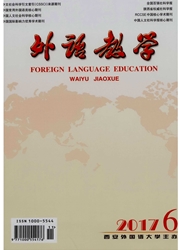

 中文摘要:
中文摘要:
查尔斯·约翰逊对道家思想的运用构成其重要作品《牧牛传说》的一大亮点,也是整个美国非裔文学中的新鲜事物。为了打破传统奴隶叙事对自由的狭隘界定,他在《牧牛传说》中有意借鉴道家、尤其是庄子有关绝对精神自由的思想来深化人们对自由的认识。虽然他在表现睿伯的道家自由精神时带有明显的矛盾性,但他的创作意图本来就不是历史现实主义,而是充满宗教与伦理内涵的黑人哲理小说。他尝试把道家思想运用到美国黑人文学中的意义值得肯定。
 英文摘要:
英文摘要:
A distinctive feature of Charles Johnson' s Oxherding Tale involves his adoption of Taoism, which is also a real nov- elty for African American literature. In order to break through the narrow definition of freedom in traditional slave narrative, Johnson resorts to Taoism, and especially Chuang Tzu' s thinking about ultimate spiritual freedom, to deepen the reader' s un- derstanding of freedom. Although his interpretation of Reb' s Taoist spirituality is obviously paradoxical, the significance of his adoption of Taoism into American black literature must be acknowledged, since from the very beginning his intention is to create philosophical black fiction that is full of religious and ethical concerns, rather than to create historical realism.
 同期刊论文项目
同期刊论文项目
 同项目期刊论文
同项目期刊论文
 期刊信息
期刊信息
